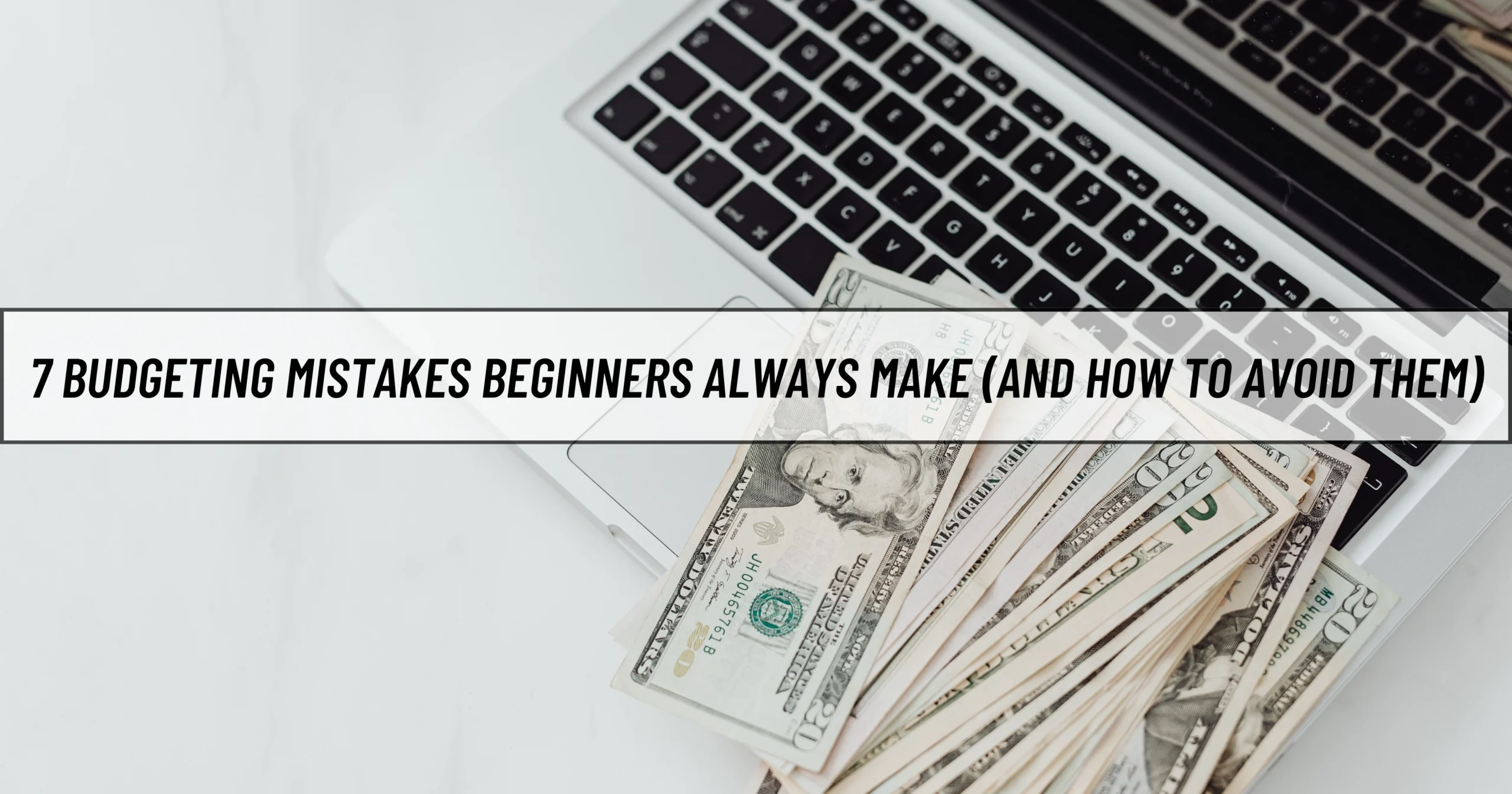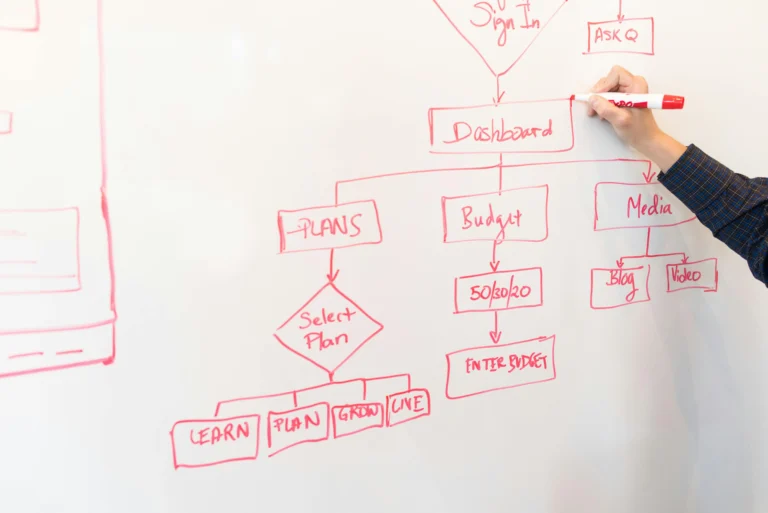7 Budgeting Mistakes Beginners Always Make (and How to Avoid Them)
You’ve promised yourself this time would be different. You were finally going to sit down, take control of your finances, and start budgeting like a pro. But somehow, by the end of the month, you’re left wondering where did all my money go?
You’re not alone. Budgeting, especially when you’re just starting out, can feel overwhelming, confusing, and sometimes even discouraging. Maybe you downloaded a fancy app, maybe you scribbled numbers in a notebook. Either way, your budget didn’t stick.
Here’s the good news: the problem isn’t you. Most people make the same budgeting mistakes in the beginning. Once you understand these common pitfalls, you’ll be able to sidestep them and build a system that actually works for you.
Let’s dig into the top budgeting mistakes beginners make and more importantly, how you can avoid them starting today.
Table of Contents
1. Not Tracking Every Expense
You might think budgeting is just about writing down your income and subtracting your fixed bills. But that’s only half the picture.
The real danger lies in the small, “invisible” expenses:
- A quick coffee run ($4)
- A late-night snack delivery ($18)
- That one-click Amazon purchase you barely remember ($27)
Over time, these add up and blow a hole through your budget.
How to Fix It:
- Start by tracking every dollar you spend for a full 30 days.
- Use a simple app , or a printable expense tracker.
- At the end of the month, review where your money actually went not where you thought it went.
💡 Tip: Use color-coded categories in your spreadsheet to spot trends faster.
2. Setting Unrealistic Budget Goals
You might be tempted to go all-in and cut every “unnecessary” expense. No more coffee shops, no takeout, no entertainment, and only $50 for groceries.
Here’s the reality: budgeting is not about punishment it’s about planning. If your budget feels like a crash diet, you’ll abandon it just as fast.
How to Fix It:
- Be honest about your lifestyle. If you usually spend $500 on food, don’t slash it to $100 overnight.
- Reduce gradually. Maybe cut that $500 down to $400 and track how you adjust.
- Include “fun money” in your budget it’s not a luxury, it’s a strategy.
3. Forgetting Irregular Expenses
This is the silent killer of budgets. You’re feeling great until your car needs new brakes or your best friend’s wedding gift wipes out your savings.
These aren’t surprises. They’re just irregular expenses things that don’t happen monthly, but happen predictably over time.
How to Fix It:
- Create a list of irregular expenses: car maintenance, annual subscriptions, holiday gifts, school supplies.
- Divide the annual cost of each by 12 and set aside that amount each month.
- Set up sinking funds in a high-yield savings account.
4. Relying on Memory Instead of a System
If you’re trying to remember how much you’ve spent or mentally juggle your weekly bills, you’re bound to miss something. Memory is not a budgeting tool.
How to Fix It:
- Use a monthly budget planner digital or paper.
- Set aside 30 minutes at the start of each month to plan your budget.
- Review it weekly. Adjust when needed.
🛒 Recommended Tools:
- Clever Fox Budget Planner – Amazon
- Budget by Paycheck Workbook – Etsy Printable
5. Not Building an Emergency Fund
This is a common oversight, especially when you feel like you’re barely scraping by. But without a cushion, one unexpected bill could derail all your progress.
An emergency fund isn’t optional it’s your safety net.
How to Fix It:
- Start small: aim for $500 to $1,000 as your first goal.
- Set up automatic transfers to a savings account.
- Keep it separate from your main account so you’re not tempted to dip into it.
6. Ignoring Debt Payments
Maybe you’ve been making the minimum payments and hoping it’ll sort itself out. But debt doesn’t just go away and it definitely doesn’t get cheaper over time.
How to Fix It:
- List all your debts: balance, minimum payment, and interest rate.
- Choose a payoff method:
- Snowball: Pay off the smallest debt first for quick wins.
- Avalanche: Pay off the highest interest rate first to save money.
- Use a free debt payoff calculator to map it out.
7. Giving Up Too Soon
Let’s be real: you will mess up. You’ll overspend, forget to track, or abandon your budget halfway through the month. That doesn’t mean you’ve failed.
Budgeting is a skill. And like any skill, it takes time, repetition, and tweaking.
How to Fix It:
- Don’t quit after a bad month. Use it as feedback, not failure.
- Set monthly check-ins. Ask: “What worked? What didn’t?”
- Keep going, even if it’s messy.
💬 Remember: Consistency beats perfection every single time.
Sample Monthly Budget Table
| Category | Budgeted | Actual | Notes |
|---|---|---|---|
| Rent/Mortgage | $1,200 | $1,200 | Fixed expense |
| Groceries | $400 | $390 | Came in under budget |
| Utilities | $150 | $165 | Electric bill was higher |
| Entertainment | $100 | $120 | Adjust next month |
| Savings | $200 | $200 | Auto-transferred on 1st |
FAQs About Budgeting for Beginners
What is the biggest budgeting mistake beginners make?
Not tracking expenses. If you don’t know where your money is going, it’s impossible to plan where it should go.
How do I stick to a budget without giving up everything fun?
Build “fun money” into your plan. Budgeting shouldn’t feel like deprivation it should feel like control.
How long does it take to get good at budgeting?
Most people start seeing patterns in the first 2-3 months. It’s a learning curve, but you’ll get there faster than you think.
Should I use a budgeting app or pen and paper?
Whichever you’ll actually use. Apps are great for automation, but if you’re a pen-and-paper person, go with that. Consistency matters more than the tool.
What if my income changes every month?
Use a base budget with essential expenses. Then prioritize variable spending only after covering the basics.
Start Budgeting with Confidence
You don’t need a finance degree, a six-figure income, or a complicated spreadsheet to take control of your money. You just need the right mindset and a system that works for you.
Now that you know what budgeting mistakes to avoid, it’s time to take action:
✅ Choose a method that fits your lifestyle
✅ Track your spending starting today
✅ Set one small financial goal for this month







